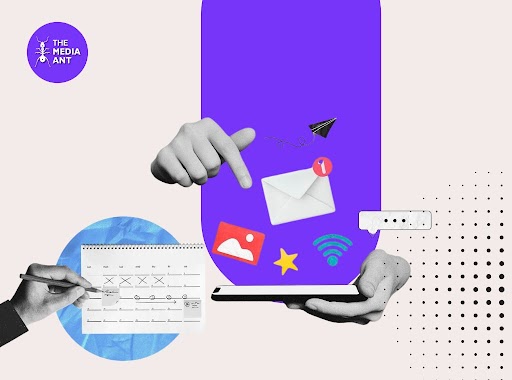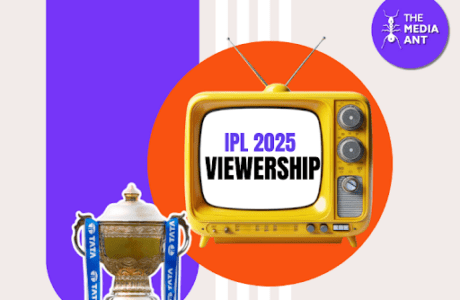What is Digital Media Planning?
Digital media planning is the strategic process of choosing and managing online platforms to effectively reach your target audience. It involves identifying the right mix of channels—such as social media, search engines, websites, and email marketing—and determining how best to allocate your budget and resources for maximum impact. At its core, digital media planning is about ensuring that your brand’s message is delivered to the right people, at the right time, and through the right digital touchpoints.
It’s more than just running ads on various platforms; it’s about aligning your digital marketing efforts with your business objectives to create an engaging and impactful experience for your audience.
Key Benefits of Digital Media Planning
- Laser-Focused Audience Targeting: One of the standout advantages of digital media planning is the ability to target highly specific audiences. Unlike traditional media, which often involves a broad, one-size-fits-all approach, digital platforms allow you to reach people based on detailed criteria such as age, gender, location, interests, and even their online behavior. By understanding your audience deeply and delivering tailored content, your campaigns become more relevant and engaging, leading to higher conversion rates.
- Maximized Budget Efficiency: With digital media planning, your marketing dollars work harder. Platforms like Google Ads and social media channels provide you with tools to optimize your spend based on performance data. Whether you’re focusing on a paid search campaign or social media ads, you can ensure that you’re spending only on the most effective channels. This reduces waste and ensures your marketing budget is spent on the activities that generate the highest return on investment.
- Instant Insights & Adaptation: Gone are the days of waiting weeks or months to analyze the effectiveness of your campaigns. Digital media planning enables you to access real-time performance data, such as click-through rates, impressions, and conversion rates. This level of insight allows you to immediately assess what’s working and what isn’t, making it easier to tweak your strategy, adjust your targeting, or even modify your messaging on the fly.
- Flexibility to Pivot and Scale: In the dynamic digital world, flexibility is key. Digital media planning gives you the ability to adapt quickly to changes in market trends, consumer behavior, or even current events. Whether it’s adjusting your budget allocation between platforms or experimenting with different ad formats, you have the freedom to pivot without significant delays. Additionally, if a campaign is performing well, it can be scaled across multiple channels to maximize reach.
- Higher Return on Investment (ROI): Digital campaigns provide opportunities to track results more accurately, which ultimately leads to higher ROI. By continuously monitoring key performance indicators (KPIs) and refining your strategy, you ensure that each dollar spent is bringing you closer to your marketing goals. The ability to optimize campaigns in real-time, adjust targeting, and focus on high-performing channels ensures that your budget is always spent efficiently.
- Deeper Understanding of Your Audience: Effective digital media planning doesn’t just help you reach your audience; it helps you understand them better. Through data analytics, you can gain insights into your audience’s preferences, behaviors, and pain points. This valuable information helps refine your content and advertising strategies, ensuring that you create relevant, meaningful interactions that resonate with your target demographic.
- Seamless Brand Consistency Across Channels: Brand consistency is crucial to building trust with your audience. With digital media planning, you can maintain a unified voice and message across various platforms. Whether your audience encounters your brand on Instagram, YouTube, or Google Search, they’ll experience the same messaging, tone, and visuals, which helps build a stronger brand identity and fosters long-term customer loyalty.
- Scalable Campaigns for Rapid Growth: Whether you’re a small business or a global enterprise, digital media planning allows you to scale your campaigns with ease. As your business grows or if you want to reach a broader audience, digital campaigns can be adjusted to accommodate new goals. You can expand your reach by increasing ad spend, trying new platforms, or launching new ad creatives, all without losing the precision and effectiveness of your original plan.
Strategies for Conversions and Maximizing Return on Investment (ROI)
Successful digital media plans start with clear, measurable objectives. Whether your goal is to drive brand awareness, generate leads, or increase sales, your objectives will guide your planning and decision-making process.
- Audience Understanding: Knowing your audience is fundamental. Through data analytics and market research, you can understand who your customers are, what they care about, and where they spend their time online. This insight helps you tailor your content and choose the right platforms to connect with them.
- Platform Selection: Not all digital platforms are created equal. The key to successful digital media planning is selecting the channels where your audience is most active. Whether it’s Google Ads, Facebook, Instagram, LinkedIn, or TikTok, choosing the right platform ensures that your message is reaching the right people.
- Compelling Content: Content is the cornerstone of any digital media plan. From catchy ads to engaging blog posts, your content should resonate with your target audience and encourage them to take action. The more relevant and engaging your content is, the more likely your campaign will succeed.
- Budget Allocation: Setting a clear budget for each platform and campaign is essential for keeping your digital media plan on track. By allocating resources strategically, you can maximize the impact of your campaigns and avoid overspending on channels that aren’t yielding the desired results.
- Analytics and Optimization: Digital media planning isn’t a one-and-done process. To continually improve your campaigns, it’s important to measure key metrics like click-through rates, conversions, and engagement. By analyzing this data, you can make informed adjustments to optimize your plan for better performance.
Why is Digital Media Planning Crucial for Your Marketing Strategy?
Digital media planning is a critical element of any modern marketing strategy. With the increasing dominance of online platforms, having a robust digital media plan ensures that your brand can break through the noise and connect with the right people. It allows you to deliver your message with precision, optimize your budget, and measure results in real time.
In an increasingly competitive landscape, digital media planning helps you stay ahead of the curve. It empowers you to reach and engage with your audience in a more personalized way, fostering stronger relationships and driving measurable outcomes. Whether you’re a small business or a global brand, a well-executed digital media plan is essential for success.
Frequently Asked Questions
What is digital media planner?
A Digital Media Planner is a marketing professional responsible for developing and executing digital media strategies. They assess target audiences, select the right digital platforms, create media plans, and allocate budgets to ensure that advertising campaigns effectively reach their intended audience. Their role involves analyzing data to optimize ad performance and ensure a high return on investment (ROI).
What is digital media planning and buying?
Digital Media Planning is the process of identifying the most effective digital platforms, channels, and strategies to reach a target audience. It involves research, audience analysis, budget allocation, and setting campaign goals.
Digital Media Buying is the process of purchasing the ad space or time on digital platforms (like social media, search engines, websites, or apps) to run advertisements. Media buyers negotiate with digital platforms to secure ad placements at the best rates while ensuring optimal reach and performance.
Why is planning the use of digital media important?
Planning the use of digital media is crucial because it ensures that marketing efforts are targeted, efficient, and cost-effective. Without proper planning:
Campaigns may waste resources on platforms or audiences that don’t align with your goals.
The messaging may be inconsistent or not resonate with the right people.
ROI may decrease due to poor audience targeting or over-budgeting on ineffective channels. Effective planning helps brands maximize their digital advertising efforts, optimize budgets, and improve overall performance.
What is a digital media channel?
A Digital Media Channel is any online platform or medium used to deliver digital advertising content to users. Examples of digital media channels include:
Social Media: Platforms like Facebook, Instagram, LinkedIn, and TikTok.
Search Engines: Google, Bing, etc., where search engine marketing (SEM) ads are placed.
Display Networks: Websites or apps that show banner or video ads (e.g., Google Display Network).
Email: Direct email campaigns to engage with customers.
Influencer Marketing: Collaborating with influencers on social media to promote products. These channels enable businesses to reach their audience in various ways, depending on their goals and target demographic.





